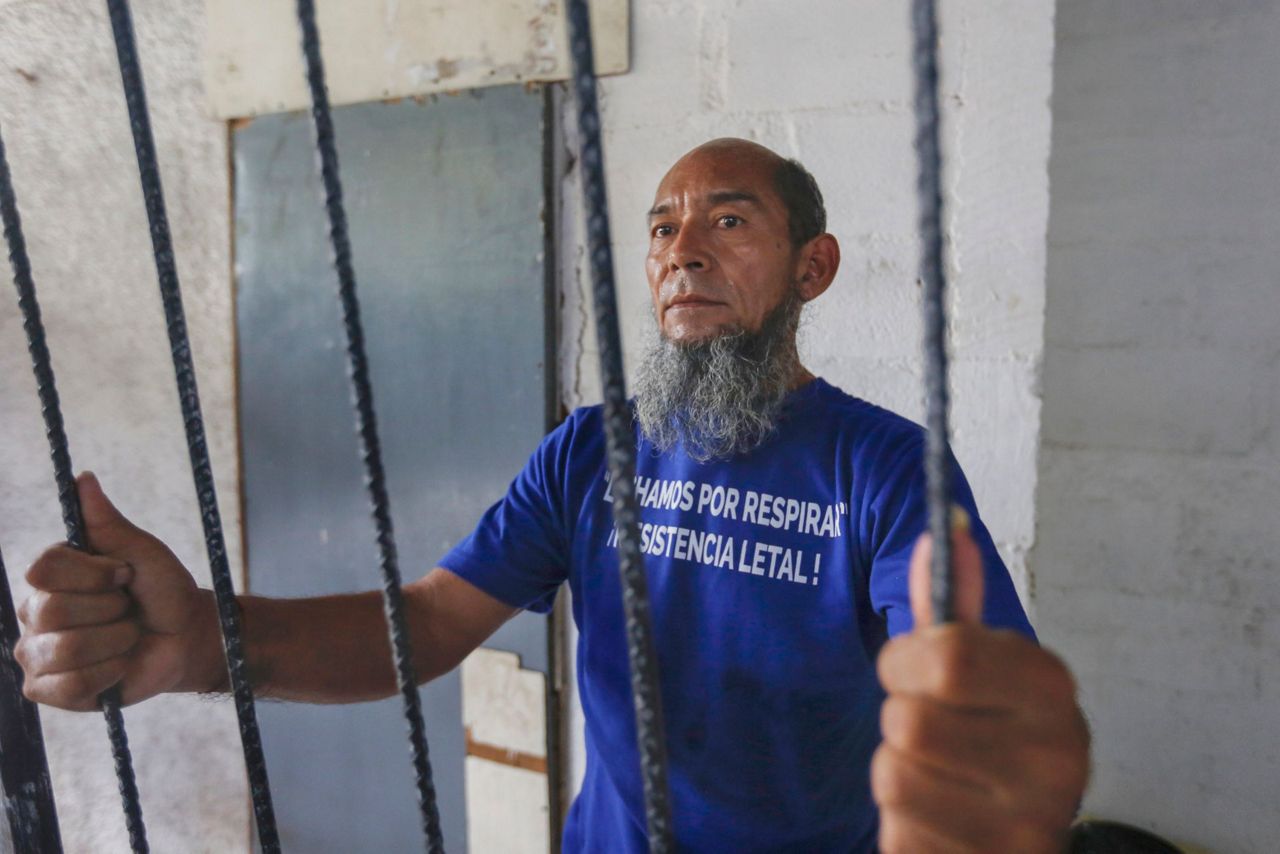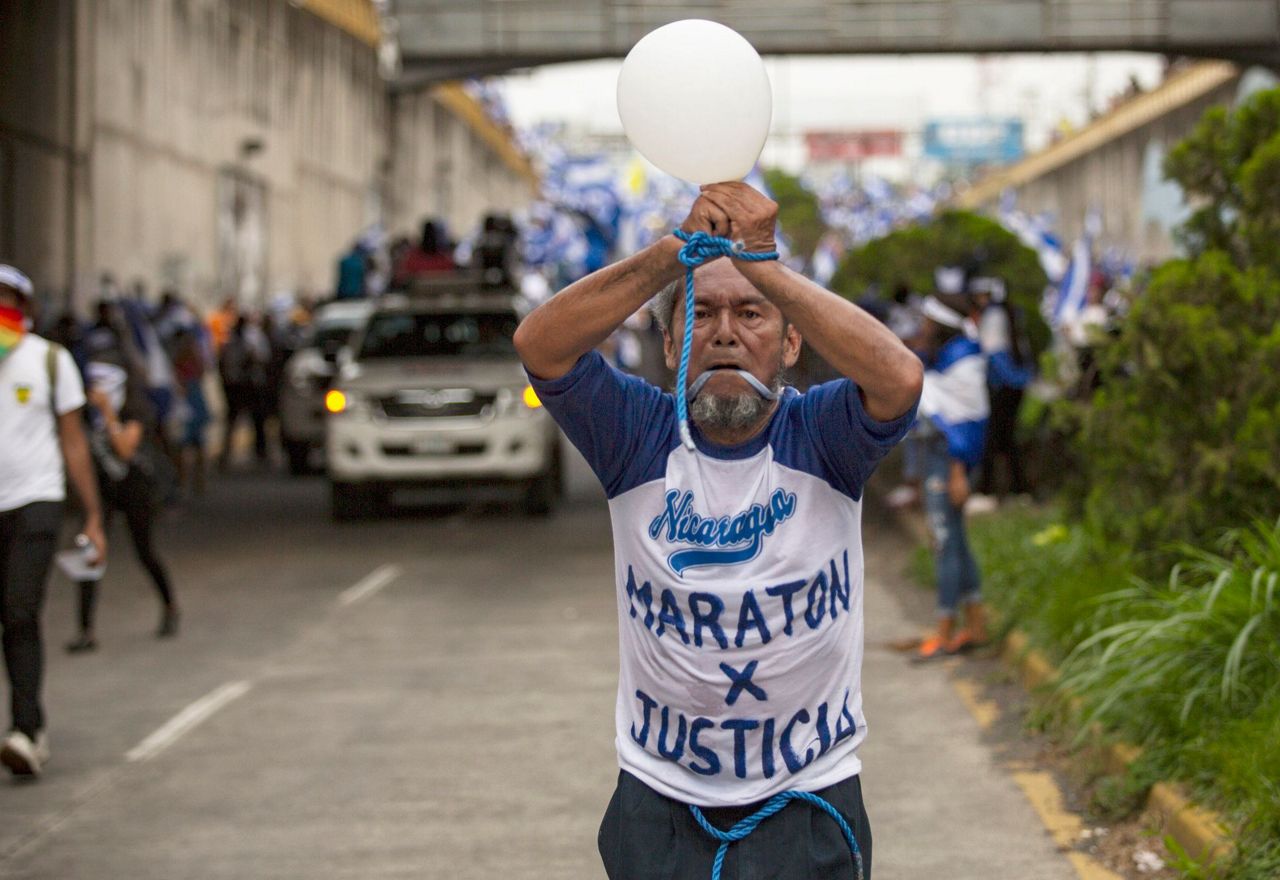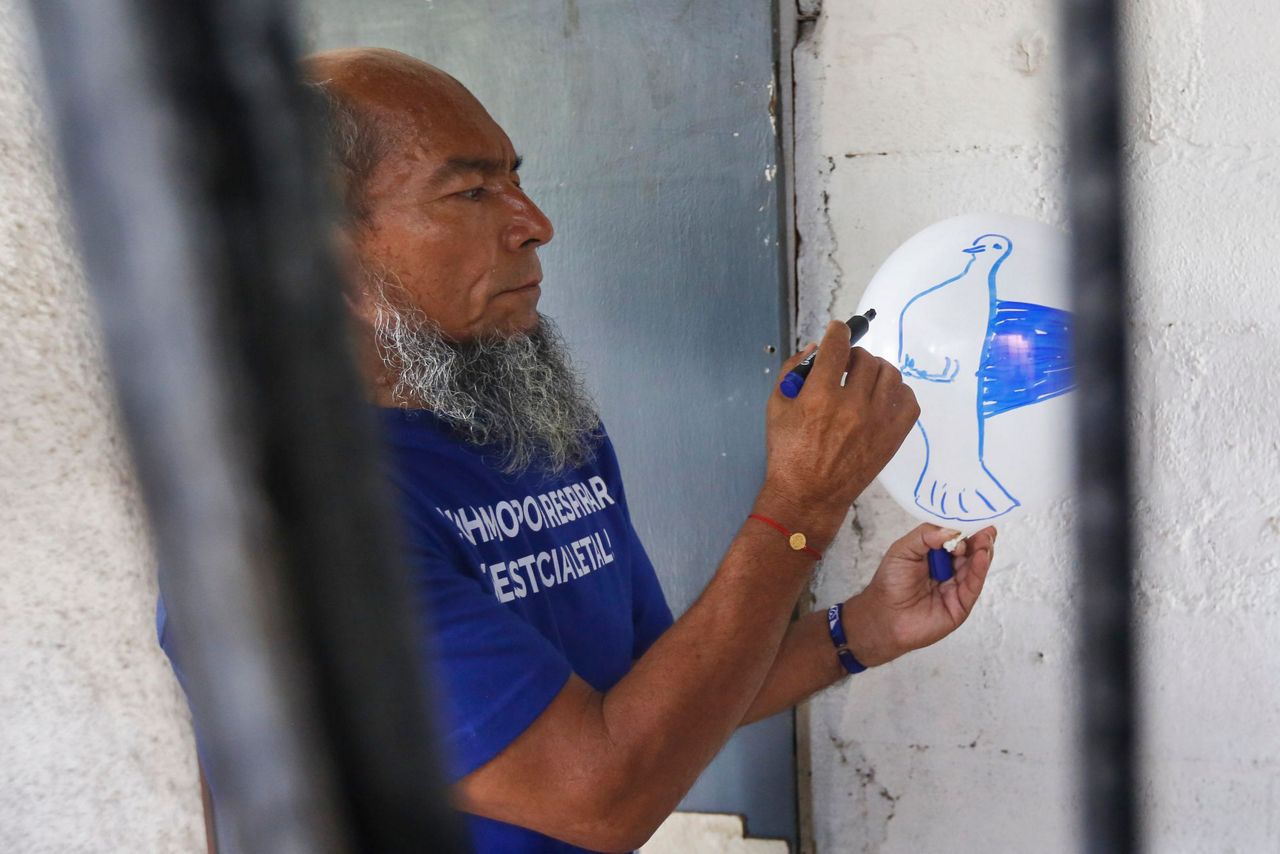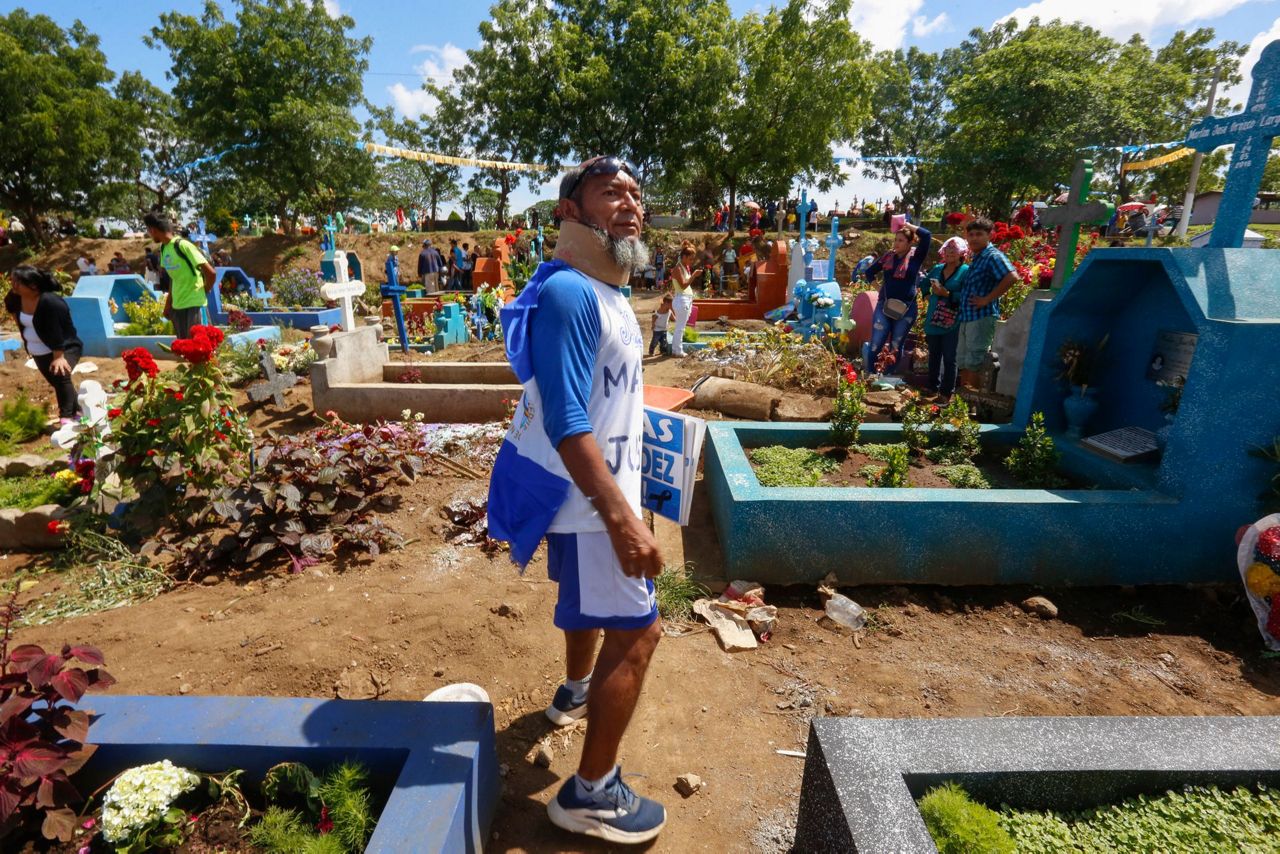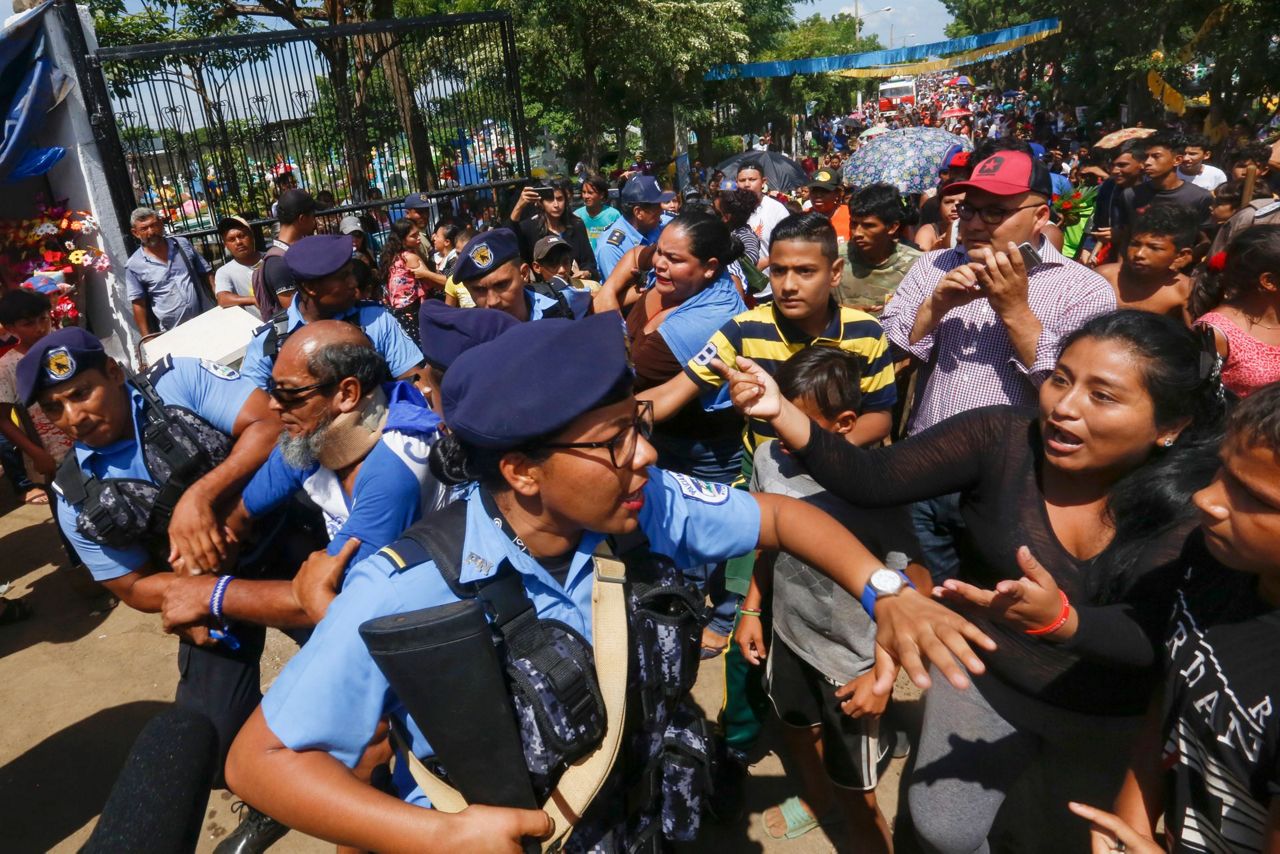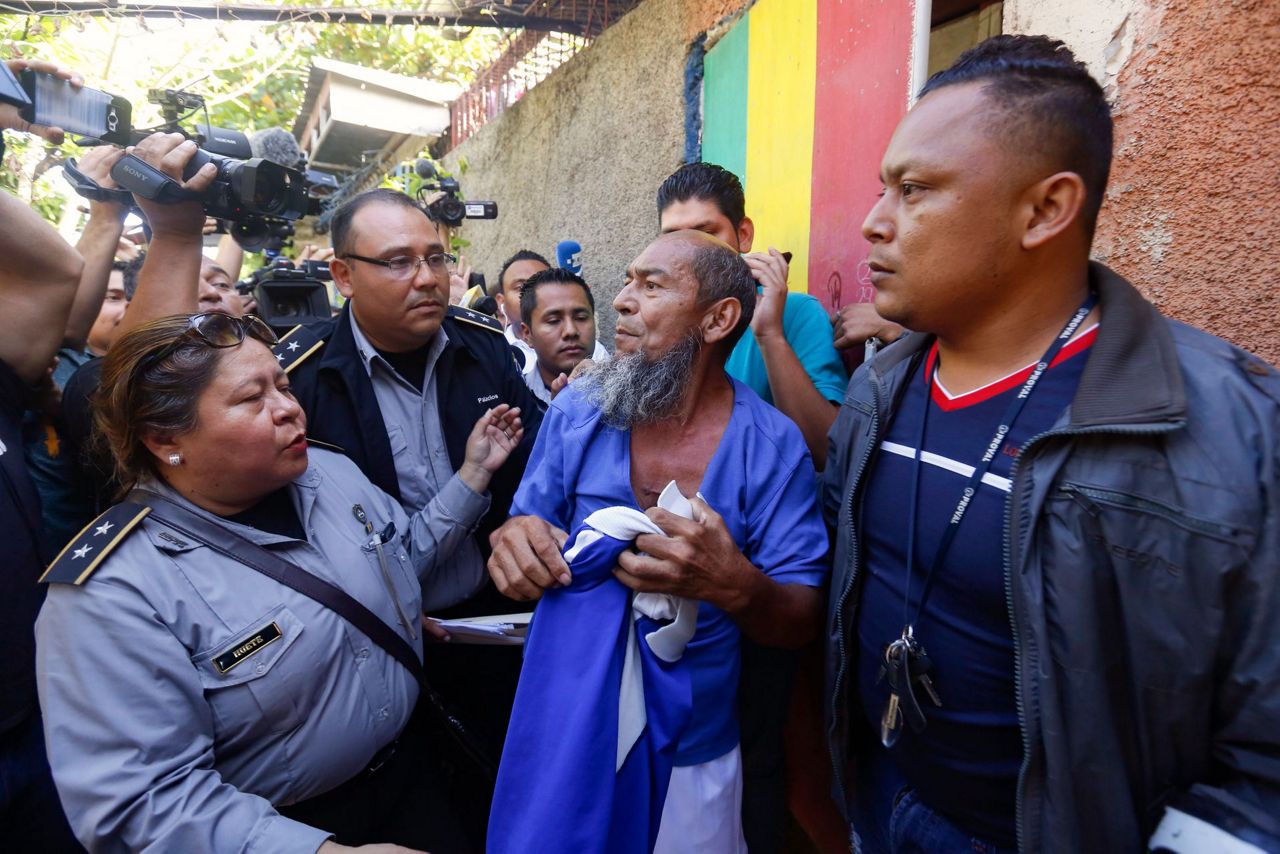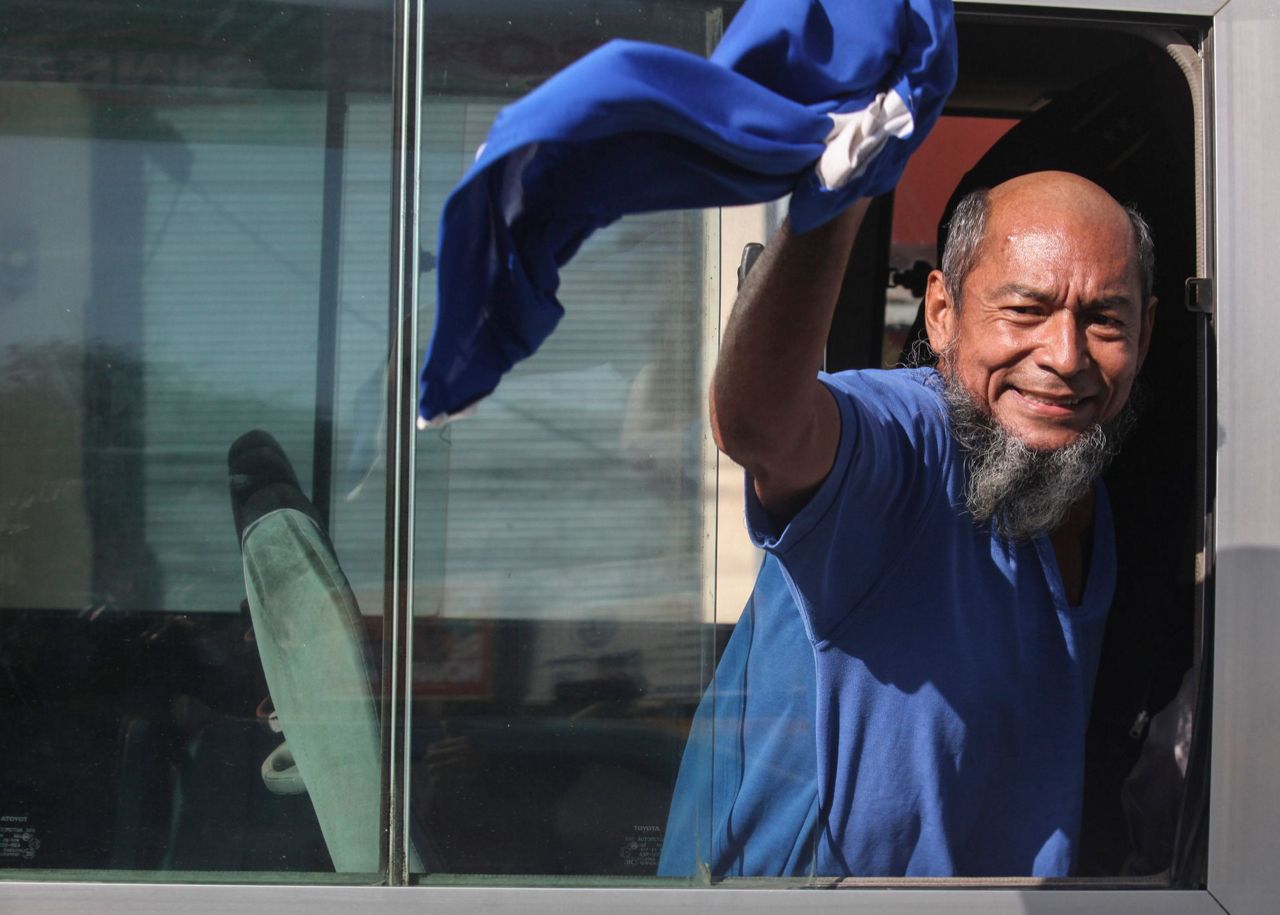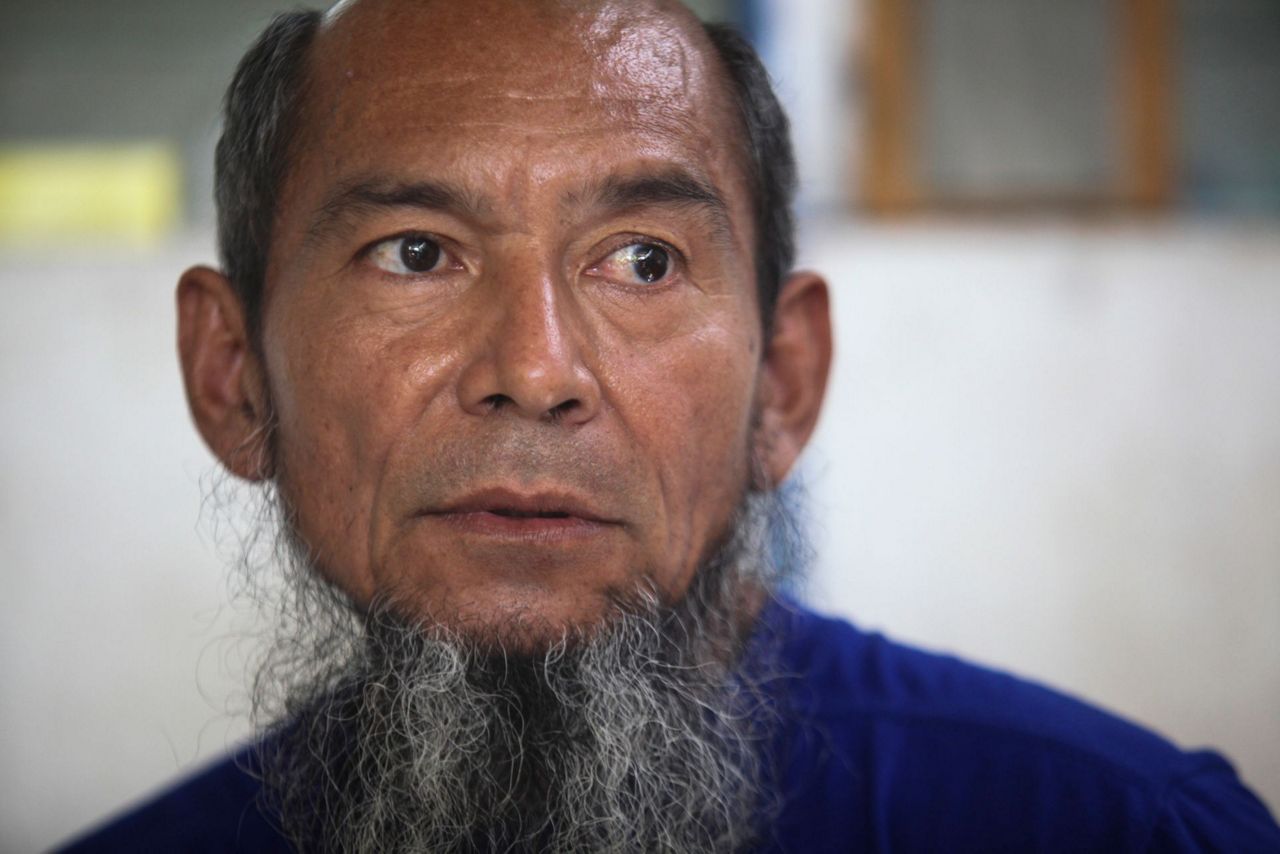MANAGUA, Nicaragua (AP) — Grasping the iron bars at his home, Alex Vanegas is taken back to the dark prison cells where he spent the previous four months talking to fellow inmates through holes in the walls that also let in rats, scorpions and cockroaches.
During the unrest that rocked Nicaragua last year, Vanegas became a prominent symbol of opposition to President Daniel Ortega, instantly recognizable for his salt-and-pepper beard and shirts emblazoned with anti-government slogans as he jogged through the streets of Managua in the blue and white of his country's flag.
Arrested again and again, he was conditionally released in late February after four months in jail but is now barred from leaving his house.
Being cooped up hasn't cooled Vanegas' defiant belief that Ortega must leave office, even if for now he has to eschew public protest.
"All Nicaragua is a prison," the diminutive 62-year-old told The Associated Press in an interview.
A longtime athlete, Vanegas competed in track tournaments until he was 46, when he retired due to various maladies. He worked as a business administrator and in sales, and he also managed a roving DJ business.
Vanegas was moved to run again when student-led demonstrators took to the streets nearly a year ago to demand that Ortega leave office and allow early elections — only for hundreds to die in a crackdown by security forces and armed civilian militias backing the president.
"On April 20 I was watching television and I saw Alvarito Conrado die," Vanegas said, referring to a 15-year-old shot in the neck as he carried water to university students hunkered down at a barricade. "I was filled with anger, and I decided to run as a way of releasing that rage and that sorrow."
He began by running around traffic circles in the capital, many of which are adorned by huge, colorful "trees of life" metal sculptures that were sponsored by and have become synonymous with Ortega's powerful first lady and vice president, Rosario Murillo.
"At first I would do a lap for every young person killed. ... Then it was 10, 20, 30," Vanegas said. "And as every day there were more and more dead, I ran more and more laps."
Nicaraguans took notice. Many took to calling Vanegas "el maratonista" — roughly "marathon man." Others mused he was Nicaragua's version of Forrest Gump, the title character in the 1994 Oscar-winning film starring Tom Hanks.
He started receiving unsolicited gifts: hats, flags, bottles of water, a pair of shoes. Independent media outlets portrayed him as a symbol of a spreading rebellion.
"I run to force Ortega out," read the message on one of his T-shirts that, along with his cellphones, were confiscated by police each time he was arrested. They also took from him dozens of Nicaraguan flags, a symbol favored by the opposition against the red-and-black flags of Ortega's Sandinista movement.
Vanegas didn't always feel that way. As a young man, he said, he supported Ortega's struggle that ousted dictator Anastasio Somoza and was jailed for four months as an urban guerrilla fighting for the Sandinista National Liberation Front.
He celebrated the triumph of the Sandinista revolution in 1979, but soon soured on what he saw as its authoritarian politics.
"Alex has become a symbol due to his bravery and his rebellion. Thousands of people love him because he represents everything that the people would like to do but can't," said activist Carla Sequeira of the non-governmental group Permanent Commission on Human Rights.
The government, not surprisingly, takes a different view.
Ortega and his allies have characterized protesters as "coup plotters" and "terrorists," and that has included Vanegas.
On Aug. 13, when Vanegas promoted a run under the slogan "Nicaragua wants justice," Murillo alluded to him by saying he was "making a fool of himself" running around in shorts. "The same ones as always — those who sell out their nation, the traitors," she added.
"I think he felt motivated by those (opposition) mobilizations and discovered that the way to show his political feeling and his solidarity was to have that permanent marathon," said Cairo Amador, a member of a truth commission created by Nicaragua's Sandinista-controlled legislature at the direction of Ortega.
Asked about Vanegas' popularity, Amador said, ironically, "It's because we don't have any other marathon runner in Nicaragua, at least not one with his constancy and perseverance."
Vanegas was arrested five times and released. Then, on Nov. 2, he was taken into custody at a Managua cemetery while accompanying victims' relatives around the Day of the Dead. He spent four months behind bars.
The first 60 days were at El Chipote prison. Vanegas said he was poorly fed and had no access to sunlight, and it partially harmed his vision. The next two months were at Modelo prison, where Vanegas said he was not tortured but lived with vermin as cellmates.
The "marathon man" was one of about 100 people deemed political prisoners by rights groups who were granted conditional release Feb. 27, the same day Ortega's government resumed long-stalled talks with the Civic Alliance opposition group.
While negotiators have agreed on a roadmap for the talks, Vanegas sees the process as fraught with pitfalls "because reconciliation cannot be imposed by decree, and this government has committed crimes against humanity."
According to the Inter-American Commission on Human Rights, at least 325 people were killed in the unrest and more than 2,000 wounded, while more than 50,000 fled Nicaragua. The government puts the death toll at 198.
The day after he was released, Vanegas laced up his shoes and began running through his neighborhood, surrounded by a pack of journalists. Twice police detained him and warned him not to leave home.
So he stopped. The tiny, dark and cluttered house in the working-class neighborhood of La Luz is being watched day and night, he said, with police patrols passing every half hour.
Vanegas lives alone because his partner was allegedly warned she should stay away from him. His four children visit and bring food, "but they are also afraid," he said.
"I risked my life to put Daniel Ortega in power," Vanegas said, "and now he has me locked up in my own home."
Copyright 2019 The Associated Press. All rights reserved. This material may not be published, broadcast, rewritten or redistributed.



